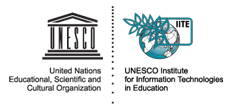Keynote Speaker: Piet Kommers
Dr. Piet Kommers is an early pioneer in media for cognitive and social support. His doctoral research focused on the methods for hypertext and concept mapping in learning. Since 1982 he developed educational technology as an engineering approach for learning and teaching. His main thesis is that technology is a catalyst for human ambition and awareness. Dr. Kommers is associate professor at the University in Twente (The Netherlands) and adjunct/visiting professor in various universities. He taught more than fifteen bachelor, master and PhD courses and supervised more than 30 PhD students. He instigated and coordinated the NATO Advanced Research Workshop on Cognitive Technologies in 1990 and a large series of Joint European Research Projects in authoring multimedia, web-based learning, teacher education, virtual 3d worlds, constructivist learning, social media, web-based communities and international student exchange. He was awarded the title of UNESCO Honorary Professor for his work in ICT for Education in Eastern Europe and Honorary Doctor of the Capital Normal University (Beijing, PRC). He is member of advisory boards in ministries of education and academia of sciences in Singapore, Finland and Russia. Piet Kommers is the initiator of the international journal for web-based communities and overall chair of the IADIS conferences on societal applications of ICT. Since the late 1990s he delivered more than 40 invited and keynote lectures at main conferences in the fields of education, media and communication. His books and journal articles address the social and intellectual transformations at each transition from “traditional” into the “new” media. Instead of regarding media as extrapolating, supplanting, vicarious or even disruptive, Piet’s view is that new media elicit and seduce both individuals and organizations to reconsider human nature and challenge existential awareness at that very moment.


